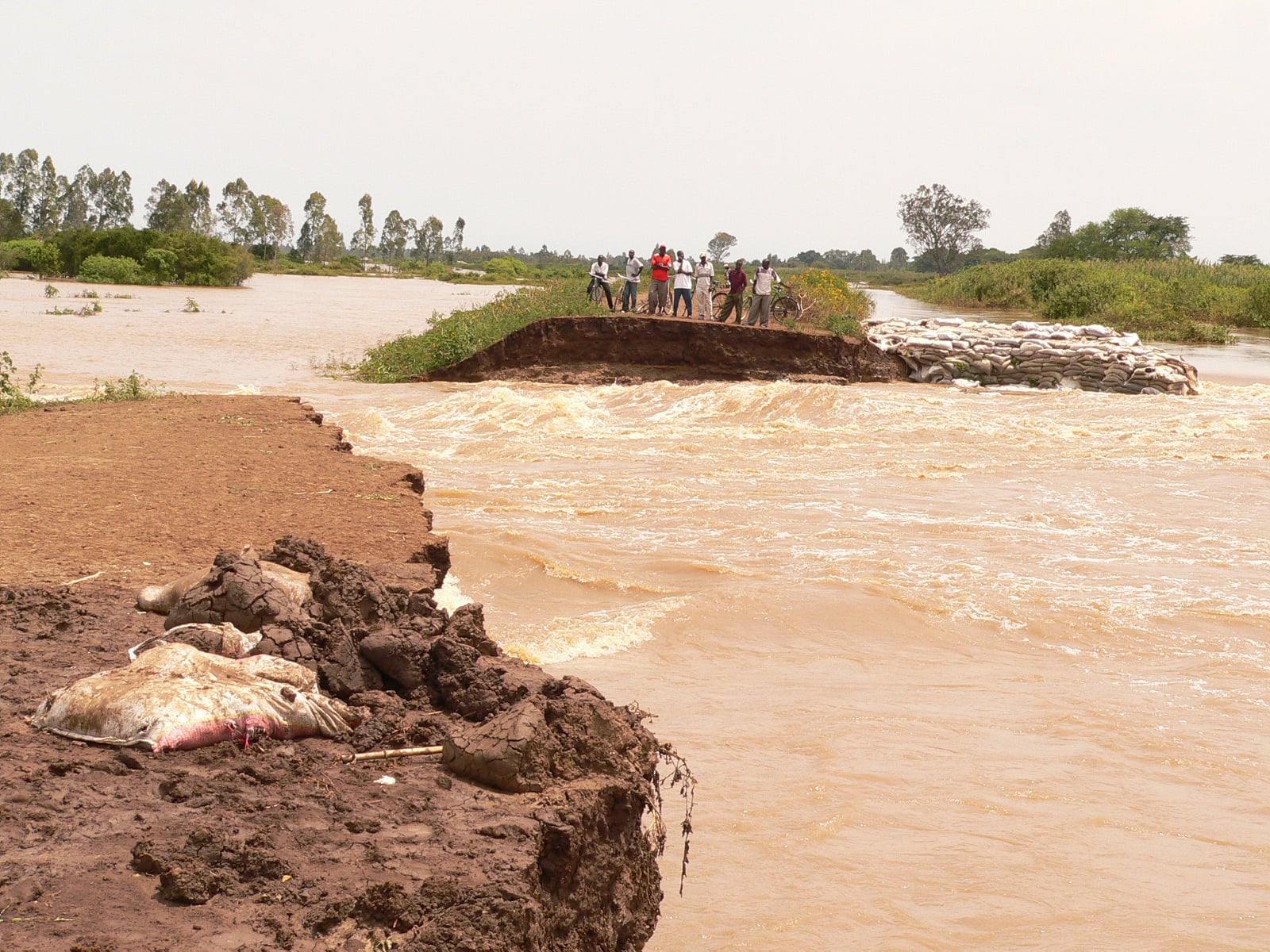As of 15 January, some 24,860 flood-affected in the Morogoro region had been registered, Morogoro Regional Commissioner, Issa Machibya, told IRIN by telephone on 21 January.
"We are giving food and shelter to the victims. All is going well," said Machibya.
He said the rains, which have pounded Kilosa District since the last week of December 2009, had affected some 5,867 households. Those affected were initially sheltered in schools and other public facilities; regional authorities later set up 24 camps to accommodate 10,585 of the homeless.
Some 1,146 houses were also extensively damaged by the floods and 4,702 others submerged, according to regional officials.
Tanzania's Vice-President, Ali Shein, who visited the regions on 20 January, appealed to Tanzanians and the international community to continue assisting the flood-affected.
|
Photo: IRIN  |
"Already, in the two weeks of rain since Christmas, the damage to the central railway line and roads in Dodoma and Morogoro regions requires 6.7 billion shillings [about US$4.8 million] to repair and rebuild," Kikwete said.
The money, he said, would be raised through the re-allocation of government funds. "This means many of our development plans will have to be postponed or foregone to enable us respond to emergencies.
"We are at a loss [as to] how many more times [we] shall we have to do this if the rains persist at this pace until the end of the rain[y] season at the end of May," said Kikwete.
jk/mw
This article was produced by IRIN News while it was part of the United Nations Office for the Coordination of Humanitarian Affairs. Please send queries on copyright or liability to the UN. For more information: https://shop.un.org/rights-permissions





